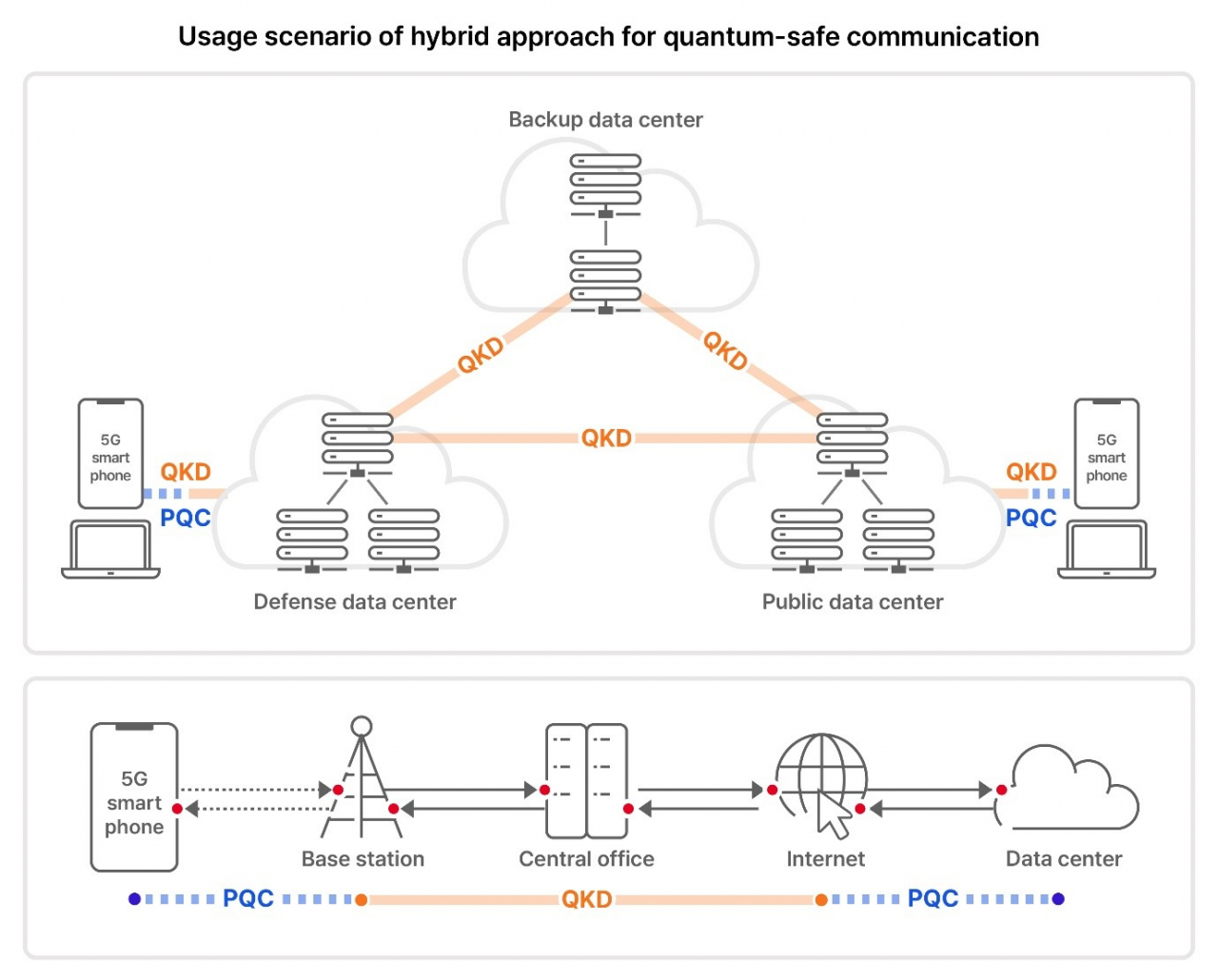SKT aims to set global standard for quantum-safe communication
By Jie Ye-eunPublished : Aug. 29, 2023 - 15:02

SK Telecom, South Korea's largest wireless carrier by membership, on Tuesday unveiled an ambitious goal of setting the global standard for quantum-safe communication, a more advanced security technology that protects the whole communication process from attacks by quantum computers.
The company said it plans to share the progress of its ongoing development project during the Seoul meeting of the UN-affiliated ITU-T Study Group 17 that kicked off its weeklong program on Tuesday.
Quantum-safe communication is a communication security technology that creates synergy by utilizing the advantages of mutually complementary quantum key distribution technology and quantum-resistant cryptography to protect the entire communication process from attacks by quantum computers.
Based on the characteristics of quantum mechanics, the security level of quantum key distribution technology is high enough to protect data from hacking threats by large-scale quantum computers. Since it is a hardware-based technology, it requires operators to install a physical key distribution device for each section.
Post-quantum cryptography, also known as quantum encryption, is the development of cryptographic systems for classical computers that can prevent attacks launched by quantum computers. It can be deployed via a software upgrade and offers high scalability.
SK Telecom has been working on a key management solution that can integrate and manage quantum cryptography and quantum-resistant cryptography. If realized, the solution will be able to protect the entire communication chain against attacks by quantum computers by integrating the operation, the company said.
“The technology is yet to be commercialized, but the development is continuing to the level where it can be applied in the market,” a SK Telecom official said. “It may take an additional two to three years to standardize the international standards.”
The key to the technology is to combine the strengths and weaknesses of quantum key distribution and post-quantum cryptography to create secure communication, the official explained, as quantum secure communication becomes ineffective when quantum computers are commercialized.
SK Telecom said it will also discuss the matter of expanding its area of standardization to quantum technology. It is planning to submit a contribution on the topic in the next research session, which will be held from 2025 to 2028.
With a rosy outlook for the quantum technology market, the wireless carrier is proactively looking to secure a space in the market ahead of quantum computing's commercialization and widespread use.
Citing some domestic and global outlook reports, the company expected the market to grow at an average annual rate of 39.8 percent to 24.6 trillion won ($18.6 billion) in 2030.
“We are excited to lead the establishment of standards for next-generation security technologies that utilize the advantages of quantum key distribution and post-quantum cryptography technologies,” said Ha Min-yong, SK Telecom’s chief development officer. “We’ll continue to make efforts to contribute to the growth of the global quantum cryptography market through active research and business.”
SK Telecom is also actively working to develop and commercialize quantum cryptography technologies. With its internet service subsidiary, SK Broadband, and Swiss-based quantum cryptography firm ID Quantique, it is working on setting standards for the operation of a quantum cryptography communication network built with equipment from different manufacturers at the European Telecommunications Standards Institute. SK Telecom verified the related technology on the national test network.
The wireless carrier has become the first domestic firm to commercialize post-quantum cryptography on virtual private networks abroad, including the US, Japan and Singapore, using algorithms that are highly likely to be adopted as international standards for the technique.
Based on the firm’s research and development efforts in quantum cryptography communication technology, it also applied quantum key distribution to the section between Seoul and Daejeon -- the most data traffic-concentrated region in Korea -- of its 5G and LTE networks in 2019. It has also won quantum cryptography communication projects in the global market such as the US, Europe and Singapore.



















